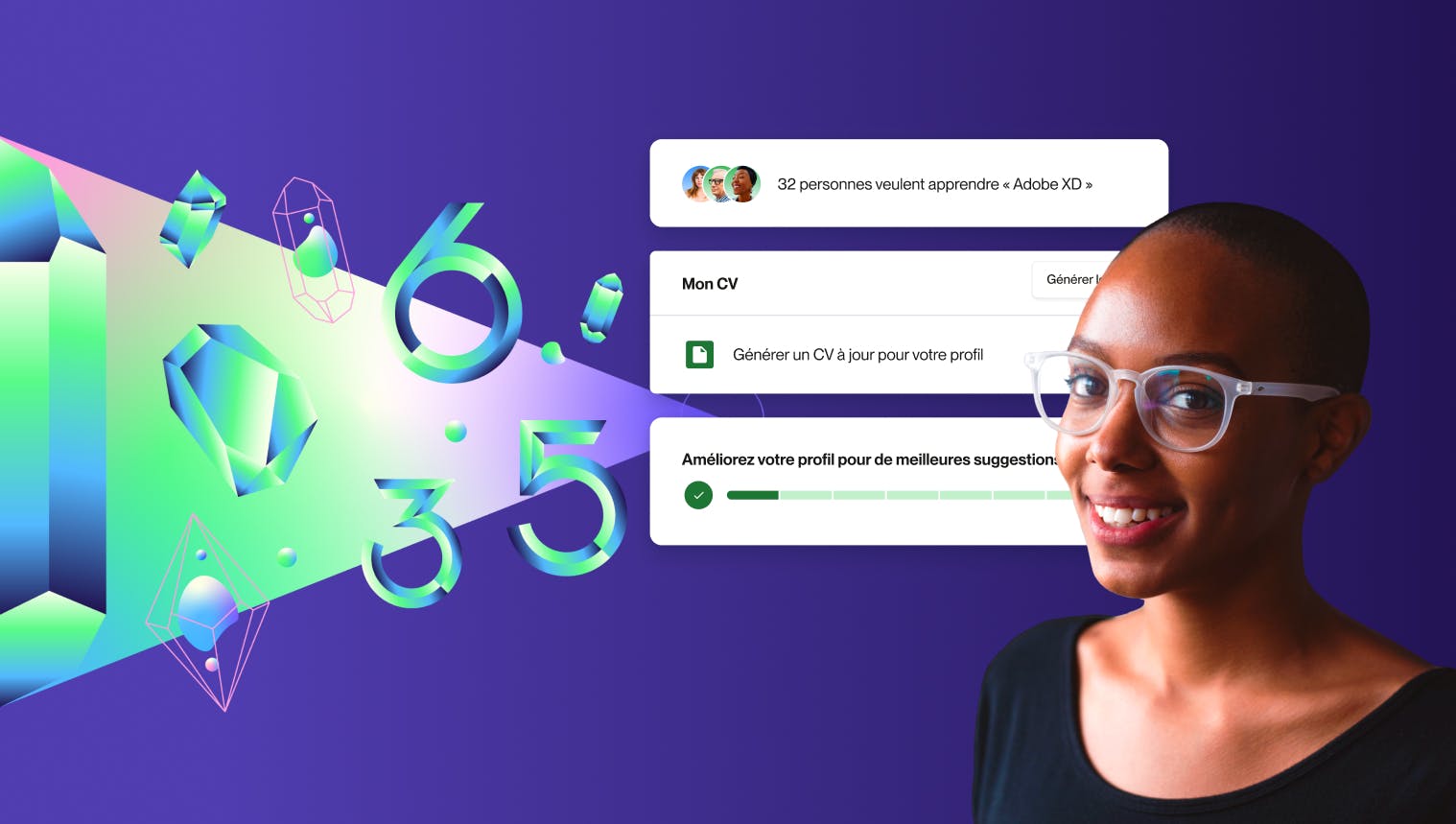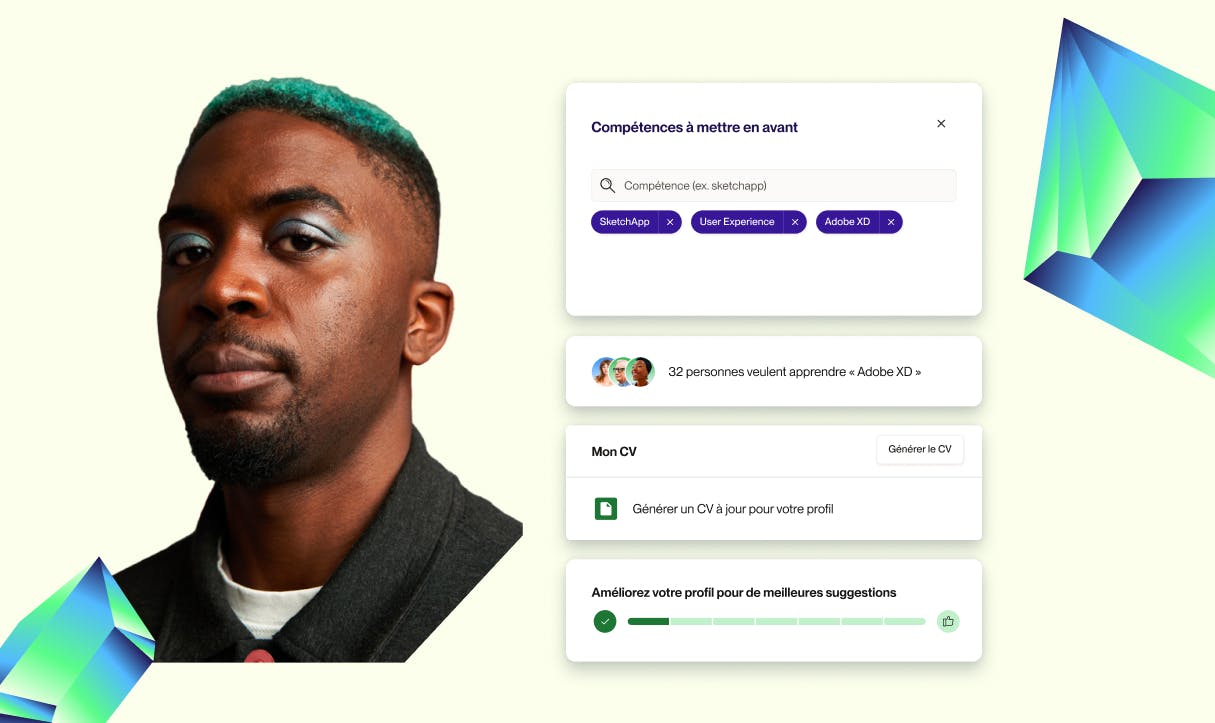Conduct the annual performance review to measure and enhance professional skills

The annual performance review is a key moment in a company's life. It allows for evaluating employees' performance, setting new objectives, and implementing skills development actions.
But how do you effectively conduct this review? What are the points to address to ensure a fair and productive evaluation? Here are some tips to help you prepare and carry out this exercise in the best possible conditions.
The importance of the annual performance review to measure professional skills
The annual performance review is a critical moment in talent management within an organization. It is a mandatory step to review an employee's performance and a valuable opportunity to measure and develop professional skills. This regular evaluation allows you to assess the alignment between employees' skills and the company's needs and define action plans for the future, ensuring a better alignment of talents with the company's strategy.
The role of human resources in the annual review process
The human resources department is key in the yearly performance review process. Indeed, it is responsible for setting up and monitoring this process, ensuring it is conducted fairly and equitably for all employees.
Human resources' first task is to define the review framework. In this sense, they can set up an evaluation grid to reference all managers. This ensures consistency in evaluations and guarantees that all employees are assessed based on the same criteria.
Human resources also provide advice and support to managers. They can help them prepare for the interview, set objectives for the coming year, or identify skills development actions to be implemented.
Finally, human resources are responsible for monitoring the process. They must ensure that the reviews are appropriately conducted, the defined objectives are achieved, and skills development actions are implemented.
Prepare the review

Preparing the annual performance review is crucial to ensure it is relevant and productive. Good preparation involves several essential steps:
Analysis of the company's goals and expectations
Before the interview, it is essential to understand the company's overall objectives and how these translate to the individual level. This step ensures that expectations for each employee are clear and aligned with the company's overall strategy. This includes an in-depth analysis of the assigned tasks, the expected results, and the skills required to achieve these objectives.
Identification of KPIs
Key performance indicators (KPIs) are central in assessing professional skills. Identifying the right KPIs for each position provides an objective foundation for evaluating performance. These KPIs should be specific, measurable, achievable, relevant, and time-bound (SMART) for accurate and fair assessment.
Data collection and feedback
Data collection before the interview is essential to obtaining a comprehensive and objective view of the employee's performance. This data can come from various sources: performance reports, colleague feedback, self-assessments, etc. This step also allows for the collection of concrete examples to be discussed during the interview, making it more tangible and constructive.
Preparing for the interview: the manager's key role
Whether for the manager or the employee, the annual evaluation interview is a crucial step. The manager must prepare for this interview carefully, considering the company's objectives and the employee's aspirations and skills.
To do this, the manager analyzes the employee's performance over the past year. The manager can also prepare questions to understand better the employee's expectations, strengths, areas for improvement, and aspirations for the coming year.
Conducting the interview
Once the interview is prepared, its execution must be well-managed to maximize its effectiveness. It should be an exchange that is well-structured while allowing for open dialogue.
Fostering an open and constructive dialogue
The interview should be an opportunity for exchange where the employee feels heard and respected. Establishing a climate of trust is important so that the conversation is constructive. This requires active listening and transparent communication. The goal is encouraging employees to express their ideas, feelings, and aspirations.
Encouraging honest feedback
Feedback must be sincere and constructive. It is critical to highlight both successes and areas for improvement. Constructive criticism, based on specific facts, helps the employee better understand their weaknesses and correct them. Similarly, it is essential to encourage the employee to provide their own feedback on the company and their role, which can be a valuable source of organizational improvement.
Managing emotions and potential conflicts
Strong emotions may arise during an interview, mainly when discussing sensitive issues. The manager must handle these situations tactfully. This involves staying calm, showing empathy, and seeking constructive solutions in disagreement or conflict.
The annual performance review can be a source of stress for the employee. Therefore, the manager must know how to manage the emotions that may arise during this interview.
To achieve this, he must create an environment of trust by listening to his employees and expressing his feedback constructively. He must also be able to manage his own emotions to ensure the serenity of the interview.








The importance of self-evaluation in the annual evaluation process

Self-evaluation is an often underestimated step in the annual evaluation interview. However, it plays a crucial role in enhancing employees' awareness of their own skills and areas for improvement.
In practical terms, it involves the employee analyzing their own performance over the past year.
- What were their achievements?
- Did they meet the objectives that were set for them?
- What are their strengths and weaknesses?
These questions help them prepare for the interview and make it more interactive and productive.
The manager, on the other hand, must take this self-evaluation into account when preparing for the interview. This gives him a more complete and objective view of the employee's performance, not just based on his perception.
Self-evaluation also allows the employee to be more involved in the evaluation and professional development processes. Indeed, by asking them to reflect on their skills and objectives, they are engaged in a proactive approach to skill development.
Evaluating and analyzing the results
After the interview, conducting an in-depth analysis of the results obtained is necessary, considering the discussions and evaluations carried out.
Performance evaluation against set objectives
It is essential to compare the employee's performance to the objectives set during the previous interview. This evaluation allows for measuring the progress achieved and determining how much the employee's skills have evolved. It should be based on the KPIs identified during the preparation.
Identifying strengths, weaknesses, and development opportunities
A comprehensive evaluation should also identify the employee's strengths, weaknesses, and development opportunities. This identification is crucial for developing a personalized development plan to help employees reach their full potential while meeting the company's needs.
Developing personalized action plans based on skills
Based on the evaluations, individualized action plans should be developed. These plans should include specific objectives for skill development and actions to be taken to achieve them. They may include training, coaching, or specific projects to strengthen the skills identified as priorities.
Ensuring post-interview follow-up
The annual evaluation interview should not be an isolated event but the starting point of continuous skill development.
Regular monitoring of the set objectives
Regular monitoring is essential to ensure that the objectives set during the interview are achieved. This involves periodic reviews to assess progress, adjust action plans if necessary, and provide ongoing support to the employee.
Measuring the impact of corrective actions
Finally, it is important to measure the impact of corrective actions taken. This ensures that efforts bear fruit and that the employee's skills constantly improve. Such an approach not only ensures the professional growth of the employee but also contributes to the overall performance of the company.
Conclusion: an evaluation interview for professional development

The annual evaluation interview is a special time to review the past year and set goals for the coming year. It is essential for skills management and employee professional development.
It is a valuable tool for skills development and company performance. It must be conducted with seriousness and professionalism, respecting everyone and constantly improving performance and well-being at work.
FAQ
How to give constructive feedback?
It is essential to be clear and precise when giving constructive feedback. Start with the positive points before addressing areas that need improvement. Use concrete examples and propose solutions or training to help the employee progress. Ensure that the feedback is balanced and focused on behaviors and results rather than the person.
How to set goals for the coming year?
To set goals for the coming year, make sure they are SMART: Specific, Measurable, Achievable, Realistic, and Time-bound. Please discuss the goals with the employee to ensure that they align with the skills they wish to develop and the company's needs. Involve the employee in the goal-setting process to encourage their engagement.
Discover more HR insights









